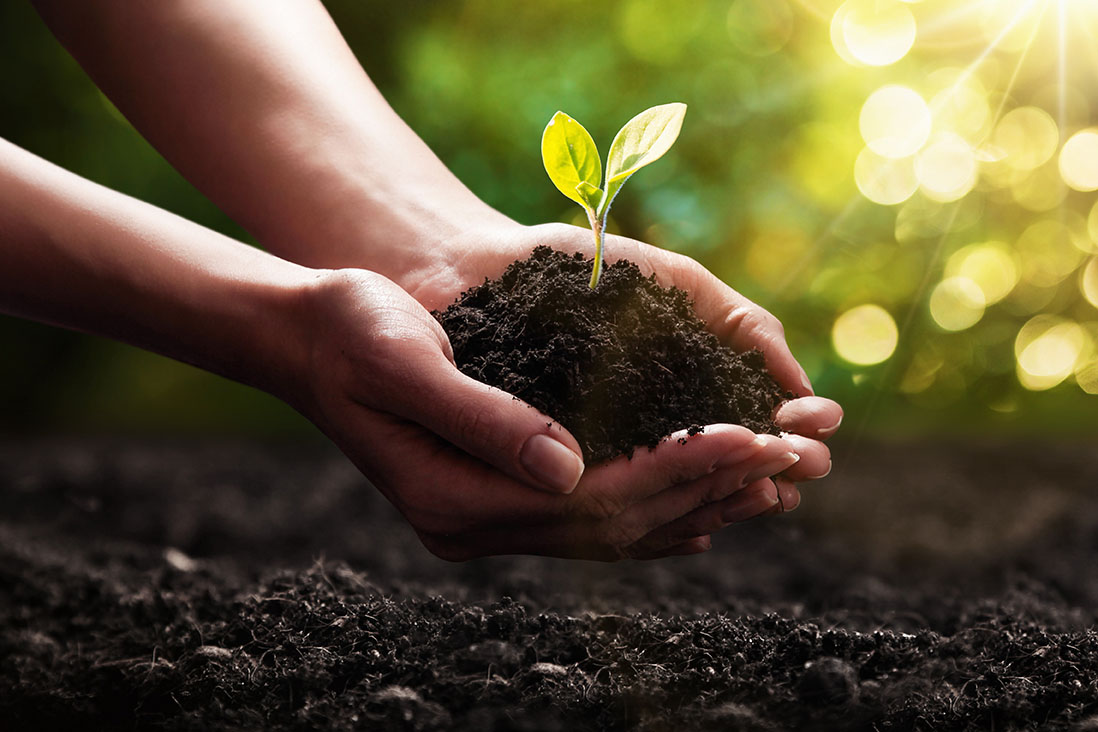Newswise — Four Florida State University researchers are helping lead the way in developing sustainable solutions to challenges facing the global community, thanks to support from the Office of the President’s Sustainability and Climate Solutions seed grant investment.
Last fall, FSU President Richard McCullough awarded nearly $600,000 to four teams tackling research projects that address long-term societal well-being, environmental health and economic prosperity. This was a key area of research incorporated into the university’s research strategic plan, known as ASPIRE.
Professor of Civil & Environmental Engineering Gang Chen, Associate Professor of Chemical & Biomedical Engineering Daniel Hallinan, Assistant Professor of Computer Science Guang Wang, and Associate Professor of Biological Science Andrew Rassweiler all received funding through the program and are now moving these projects forward.
“Florida State has a robust community of faculty researchers who are dedicated to using their knowledge to improve the world around us,” said Vice President for Research Stacey S. Patterson. “This funding provides critical seed support to faculty in the beginning phases of exploration and will allow them to pursue external funding and partnerships.”
Here is where the four projects stand:
Creating new materials to transport water
Hallinan is collaborating with Professor of Chemistry Joseph Schlenoff and Associate Professor of Chemistry Justin Kennemur to create new materials that can transport water or other charged materials through membranes. These systems could potentially be used to mine sea water for critical minerals such as lithium.
“There are many valuable minerals in the sea water at low concentrations, but we have no way of harvesting them at present,” Hallinan said, noting that lithium is needed for electric vehicles and other battery applications.
Hallinan said that the funding from the Sustainability and Climate Solutions seed investment is allowing his team to collect preliminary data and establish a foundation in a new area of inquiry.
Hallinan’s lab has largely studied polymers for advanced energy sustainability but had not specifically developed approaches related to selective ion transport, which is at the heart of this work.
The team is hoping to have a manuscript for publication and a proposal for external funding ready by the end of fall semester.
Developing autonomous systems to map reefs and coastal habitats vulnerable to climate change
Rassweiler and colleagues in the FAMU-FSU College of Engineering have been working on autonomous methods to map coral reefs and coastal habitats so researchers can collect more information on reefs and how they are adapting to warming ocean waters and other stressors.
In the Caribbean, live coral cover has declined over recent decades and environmental resource managers are working to protect existing coral populations. However, most data collection is reliant on scientific divers who aren’t always able to collect large, complex swaths of data at a time. Rassweiler, working with Associate Professor of Biological Science Sarah Lester and FAMU-FSU College of Engineering Assistant Professor Olugbenga Anubi, is developing a small, remote-controlled boat that could collect data along a coastline.
This would help scientists and conservationists better understand the coastal landscape and make recommendations on how to better protect coral populations.
“Local managers, no matter how attentive they are, don’t control the climate,” Rassweiler said. “So, what we’re looking at is how we can be as smart as we can about local stress or stressors under our control.”
The autonomous boat will be deployed this summer in Bonaire where the team conducts field work.
Investigating how forest wetlands are adapting to climate change
Chen, along with Professor of Earth, Ocean, and Atmospheric Sciences Ming Ye and Director of the Center for Economic Forecasting and Analysis Julie Harrington, are investigating how wetlands are adapting to climate change and how forest management officials are combatting those issues.
Since the seed grant was awarded, the team has been collecting data from the Apalachicola National Forest, the only national forest in the Florida Panhandle. The team is examining streamflow, water yield, functions of geographically isolated wetlands and future climate projections. They are also investigating potential economic and demographic effects of management policies to provide insightful economic impact assessments.
“In engineering, we focus on applications,” Chen said. “This project brings us together with social scientists and looks at the whole ecosystem.”
The team is finalizing their data collection and plans to apply for National Science Foundation funding to further the work.
Increasing electric vehicle usage in rural areas
Wang is doing his part to help rural communities support electric vehicle usage for social, economic and environmental sustainability.
Wang and his colleagues have been collecting data on electric vehicle adoption in Florida and from EV charging stations across the state. The goal is to create a data-driven framework to help promote EV adoption in rural areas. He is collaborating with Associate Professor of Public Administration Tian Tang, Associate Professor of Civil Engineering Eren Ozguven and Professor of Political Science Eric Coleman.
Wang said the easy answer to more adoption is to deploy more charging stations, but he and his colleagues want to understand the social, technical and economic barriers facing communities so that they create a framework that facilitates easier adoption.
Wang said the president’s seed investment was a great opportunity for faculty to jumpstart new projects.
“I’m very excited that we as a university are focusing on climate change and sustainability,” Wang said. “When I saw this funding opportunity, I thought I could explore some new ideas that could benefit society.”

